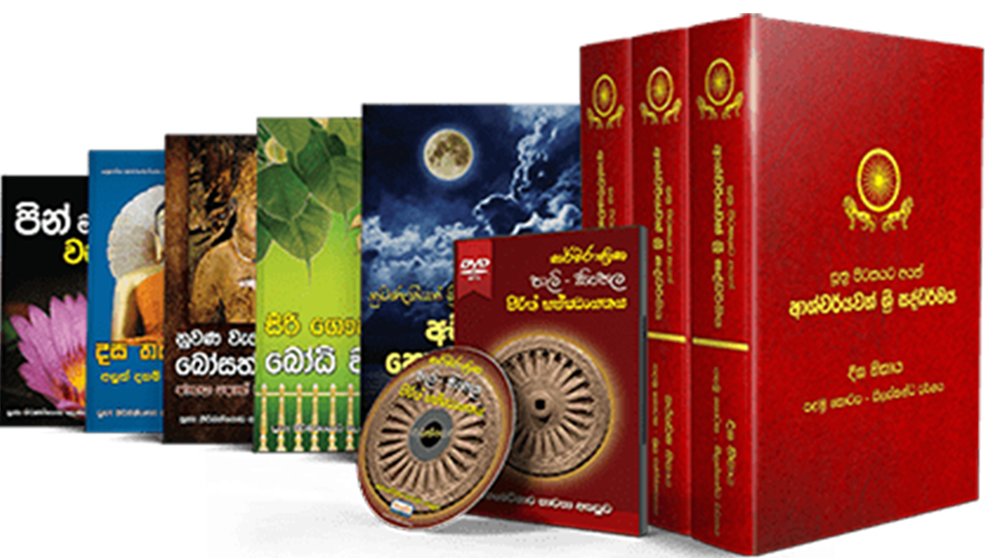The Beginning of the Mahamevnawa Buddhist Monastery
With a genuine intention of hoping ‘to create a group of people who would brighten the Order of the Gautama Buddha’ the meritorious premises named ‘the Mahamevnawa Buddhist Monastery’ was originated for the wellbeing of both human and deity worlds since the foundation stone was laid by the hands of Most Ven. Kiribathgoda Gnanananda Thero on August 14th, 1999. Mahamevnawa became one of the famous Buddhist monasteries in Sri Lanka as well as in other countries around the world, only within twelve years of short time period since the monastery was started.
The ‘dissemination of the Dhamma’ started by the founder of the Mahamevnawa Buddhist Monasteries, Ven. Kiribathgoda Gnanananda Thero, with his thirty years of experience as a Buddhist monk, was widespread throughout the country in a very short period of time. As a result of describing the Buddha’s Dhamma in a comprehensible language pattern, devotees of all ages started to join Venerable Thero’s meditation programs. Because of his talent in presenting the meditations in a way so that one’s mind will get easily surrendered, these programs became accommodating for many people who were looking for meditation classes. Activated by His innovating style of presenting the Dhamma to elevate the faith towards the Buddha, humans’ hearts started to open to perceive the taste of the contents in the discourses that have been preached by the Gautama Buddha. Especially, the effort to bring the Tripitaka Dhamma to the devotees in its original form was the distinguishing quality of Mahamevnawa. Consequently, a collection of young people who listen to the Dhamma and practice meditation was created around the world. More people who are fond of the Dhamma and observing virtue were also formed. Together with these two groups, another group of elderly people was also formed to practice the Dhamma with an aim of realizing the Four Noble Truths revealed to the world by the Supreme Buddha.
Presently, there are more than 800 young disciple Bhikkhus, more than 100 young disciple Nuns, hundreds of thousands of lay disciples, and more than 50 local and foreign branches of the monastery were created in twelve years of the short time period as a result of this effort.
Dissemination of the Dhamma via Mahamevnawa Overseas Branches
Also, there are branches of the Mahamevnawa Buddhist Monastery in other countries like Australia, New Zealand, England, Canada, South korea, Cyprus, Italy, France, India, Netherlands, Dubai, United States of America and Germany. Furthermore, spreading of the Dhamma is being carrying out in many other countries.
The Mahamevnawa Buddhist Monasteries participated in the Chanting ceremony of the Tripitaka carried out in the sacred premises of Buddhagaya of India in the years 2006, 2007, and 2008 by representing Sri Lanka.
Centers for weekly meditation programs are also created for the lay disciples to practice the Dhamma by residing in the premises. Weekly meditation centres in Tabhakanda and Bhavana Kanda are dedicated to male disciples while Mutugala Anagarika Monastery is for female disciples.
Disciplined Bhikkhu disciples ordained under Ven. Kiribathgoda Gnanananda Thero also performs meditation programs in the Mahamevnawa Meditation Centers around the country. More Dhamma programs are conducted in many temples around the country too. A large number of devotees gather in these Dhamma programs each time to listen to the exalted Dhamma bearing the Four Noble Truths. There are times when Ven. Kiribathgoda Gnanananda Thero conducts the Dhamma program and more than 15,000 people would participate.
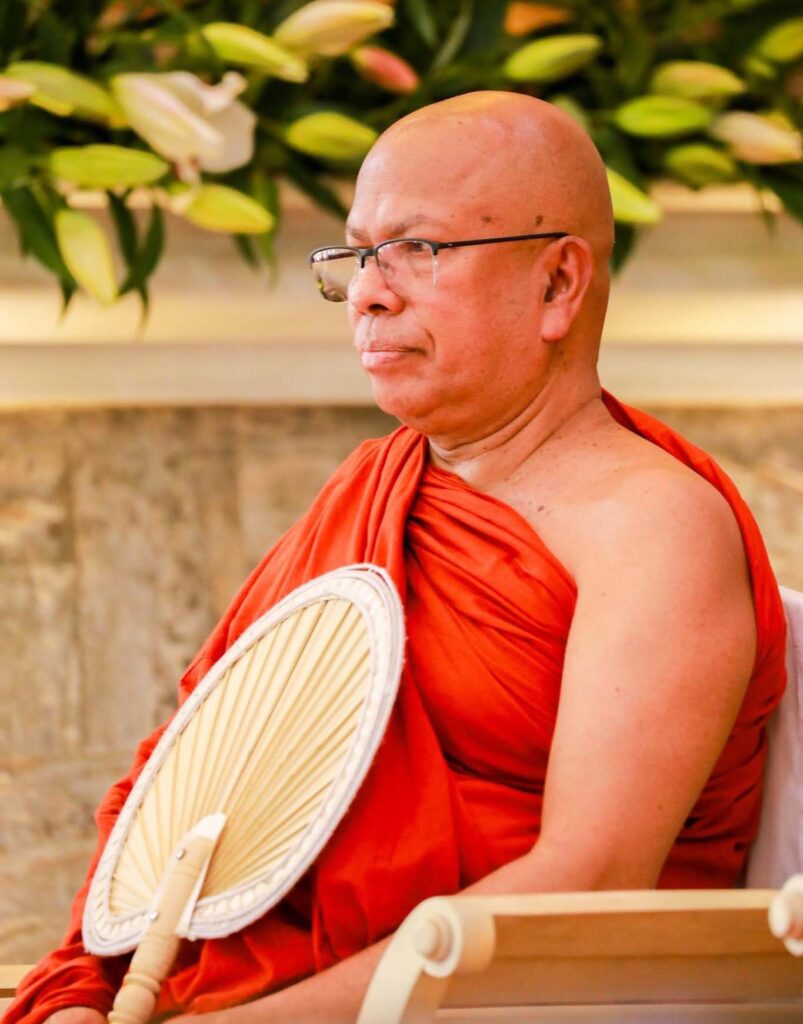
Mahamevnawa Buddhist Monasteries in Australia
Currently, there are seven Mahamevnawa Buddhist Monasteries in Australia. At each of these monasteries, there are resident monks who have renounced all worldly pursuits to achieve a life of austerity under vows of humility, simplicity, chastity and obedience with the eventual aim of reaching the ultimate goal, Nibbana. Such renunciations include but are not limited to family life and other relationships and encumbrances in order to give more energy and focus directly to spiritual practices.
These seven monasteries are located in five cities: Sydney, Adelaide, Perth, Brisbane and Melbourne (3 in Melbourne). The key aim of Mahamevnawa Buddhist Monasteries is to provide awareness as to the original teachings of the Supreme Buddha to all communities across Australia to uplift their spiritual knowledge as well as their qualitative characteristics.
Mahamevnawa Buddhist Monastery of Adelaide
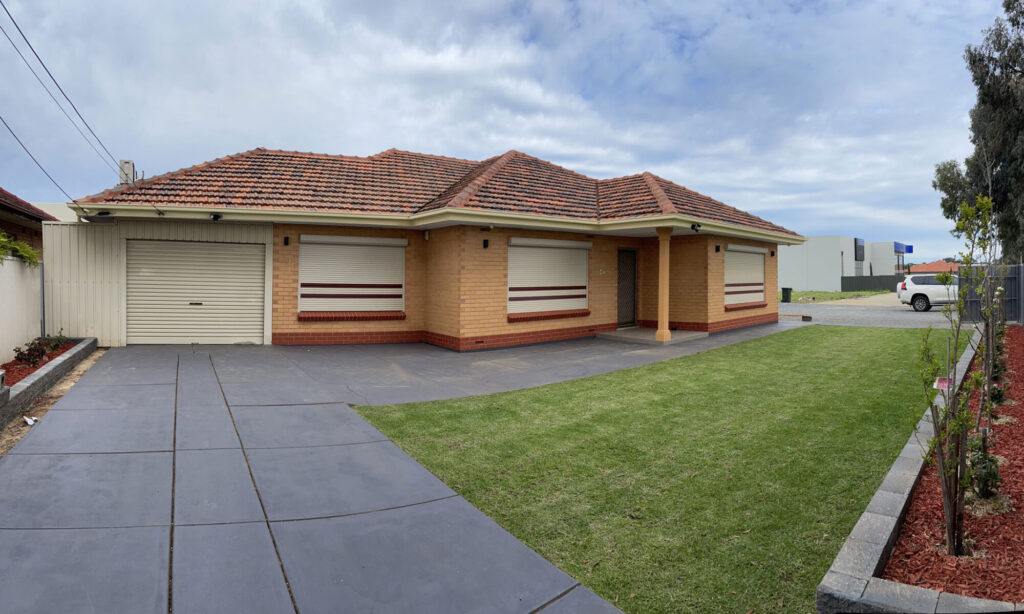
Mahamevnawa Buddhist Monastery in Adelaide is an international branch of the Mahamevnawa Buddhist Monastery (MBM) in Sri Lanka, a non-profit organisation founded by the Chief Abbott of the Mahamevnawa Monastic Order, Most Venerable Kiribathgoda Gnanananda Thero. The Monastery was established with the noble and genuine intention to increase the knowledge of the Supreme Buddha’s teachings amongst the broader community in South Australia during an era when the words of the Blessed One are slowly fading away from humanity. Mahamevnawa Adelaide, in particular, was founded as the first Mahamevnawa Monastery in Australia on the 13th of February 2015. In 2022, the Monastery relocated to a property in Salisbury Plain, South Australia due to its monastic, picturesque setting, well suited to assist in fulfilling its purpose.
Mahamevnawa Buddhist Monastery in Adelaide is led by venerable monks who have undergone comprehensive training in Sri Lanka to learn and practise the oldest tradition of Theravada Buddhism, based on the collection of scriptures in the Pali Canon. Through the guidance of competent and experienced monks residing in the Monastery, the lay devotees of the Mahamevnawa Buddhist Monastery are privileged to learn and practice the teachings of the Supreme Buddha on mindfulness, meditation, virtue and generosity. The services provided by resident monks and the board of directors are purely voluntary and they are not limited to conducting Dhamma programs, major religious events & community service activities. All monastery services are provided free of cost to the community.
Our Vision
As mentioned before, our key aim is to provide awareness as to the original form of the teachings of the Supreme Buddha to the broader community. The Monastery offers children, youth and the elderly community effective spiritual support as well as systematic guidance for training and practising the principles of the Dhamma (the teachings of the Supreme Buddha) while emphasising its multifaceted benefits.
In order to achieve this goal, Mahamevnawa Monastery in Adelaide has implemented a variety of short-term and long-term strategies to promote both regular and special programs. With the original Buddhist teachings as its foundation, it has prioritised developing the fundamental behavioural traits necessary to bring about wholesome mental states needed to reach the end goal of Nibbana. Such traits include but are not limited to loving-kindness, compassion, altruistic joy and equanimity.
Mahamevnawa Buddhist Monastery in Adelaide encourages the community to observe and protect the Precepts, the fundamental virtues that lead to the development of noble qualities, social cohesion and the ultimate happiness that comes with the ending of all suffering. The methodical approach adopted in the monastery programs helps participants abandon harmful speech and actions in order to live peacefully and in harmony with others in this diverse, ever-changing society. The Monastery encourages and guides its devotees in understanding the importance of practising the qualities of patience, compassion, generosity, gratitude and respect towards parents, teachers and elders. These qualities lay a solid foundation for the wholesome aptitudes required to live a peaceful and happy life filled with mutual respect.
Free services provided by the Monastery
- Foster personal and spiritual development of those individuals in the community through teachings of the Supreme Buddha according to the doctrines found in the ancient Pali Canon of Theravada Buddhism. The teachings encourage the community to practice fundamental virtuous behaviours, meditation and develop wisdom to help individuals reach the ultimate happiness that comes with the understanding of the true nature of life.
- Teach, educate and provide training in meditation to achieve a state of sound mental health, equilibrium and tranquillity. Routine Dhamma programs help the children, the youth and the elderly develop key behavioural traits required to bring about wholesome mental states. These qualities lay a solid foundation for aptitudes required to live a peaceful family life, and respect all in society.
- Organise regular volunteer-based social and public welfare programs within Australia and worldwide through various charitable, philanthropic, benevolent and humanitarian works such as regular blood donation programs, Australia Day cleanup activities, helping the needy through material donations at hospitals and meals for disabled inmates of care centres without any discrimination of race, age, religion or any other criterion.
- Provide education to uplift the spiritual knowledge and experiences of children through the Sunday Dhamma School (for ages 6 – 15) & children’s Dhamma sessions with the aim of nurturing strong wholesome character traits in children such as, patience, compassion and generosity based on the observance of five Precepts. A vital element of implementing programs and events for the young generation is the systematic cultivation of exceptional mental states such as loving-kindness, altruistic joy and equanimity.
- Provide blessings and spiritual advice to the congregation, counselling for youth, adults and families, visiting retirement villages and hospitals of elderly devotees with the aim of relieving their mental and physical concerns through the chanting of blessings, counselling and meditation practices.
- Maintain a library of books written in English and Sinhalese on the teachings and practices of Theravada Buddhism, Sri Lankan history and Sinhalese cultural practices in order to encourage self-education.
- Provide facilities for devotees to watch and listen to the ‘Shraddha TV & Radio’ broadcast of the Mahamevnawa Buddhist Monastery in Sri Lanka and co-contribute to programs run on these not-for-profit media to further uplift the spiritual and cultural knowledge of its worldwide audience.
Major Events Organised
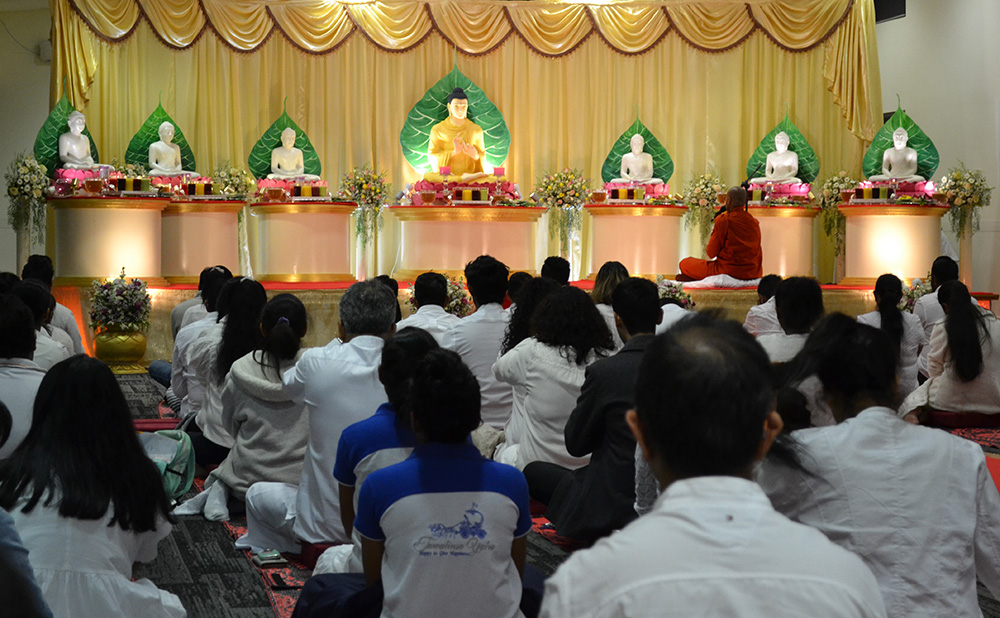
- Vesak festival celebrating the Birth, Enlightenment & Parinibbana (Death) of the Supreme Buddha (On the Full moon day in the month of May each year).
- Poson festival celebrating the introduction of Buddhism to Sri Lanka (On the Full moon day in the month of June each year).
- Katina festival to commemorate the end of Vassana/Rainy retreat period.
- New year blessings ceremony for the congregation is held on the 1st of January each year.
- Meditation and Dhamma Sermons are held at the Monastery premises and at various community halls.
- Monthly observance day, when the devotees observe higher precepts to cultivate a disciplined mind.
- Children’s Dhamma School held weekly (except during the 2nd Sunday of each month) for Children who are in the age group of 6-15 years.
- Youth Dhamma Program held monthly (1st Saturday of each month)
Mahamevnawa Branches In Sri Lanka
Mahamevnawa branches in Polgahawela, Matara-Aparekka, Kaduwela, Malhabhe, Kundasalaya, Anuradhapuraya, Polonnaruwa, Kurunegala, Banhdarawela, Monharagala, Kataragama, Ibbagamuwa, Madawala Ulpata, Rattota, Siripagama, Eratna, Balangoda, Sooriyavewa, Valhasmulla, Polpitigama, Galnaawa, Aanhamaduwa, Horanha, Potuhara, Seerupita, Hunhumulla, Sadhalankava, Nittabhuwa, Mahawa, Galle, Buttala, Welimada, Bulatsinhala, Kantale, and as well as in Halawata-Koccikade have been established locally.
While the main branch of the Mahamevnawa is located in Polgahawela, it is beautified by a prodigious temple castle named ‘Sri Sambuddha Rāja Mālhigāva,’ a ‘Siri Gautama Bōdhi Manhdapaya,’ and an aesthetic Stupa named ‘Siri Gautama Damsak Mahā Sēya.’ The Bhikkhu training centre of the Mahamevnawa Buddhist Monasteries is based in the Aparekka Mahamevnawa branch.
Other than these branches, the Mahamevnawa Bhikkhuni centres are created in Dabhadeniya, Varakapolha, Mawatagama, Anuradhapuraya, Udupila, and Kadugannawa.
These Mahamevnawa branches that are located around the country bring a great fortune to hundreds of thousands of people. At this point, most of these Mahamevnawa branches have statues of the Buddha, beautiful Stupas, and Bodhi trees.
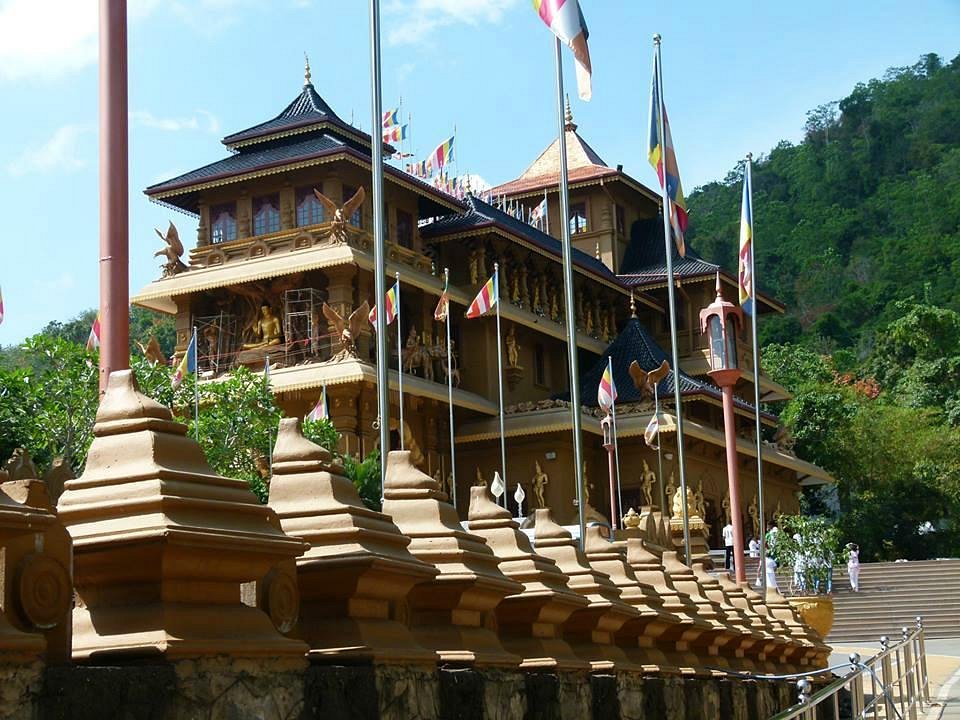
Great Worshiping Ceremonies
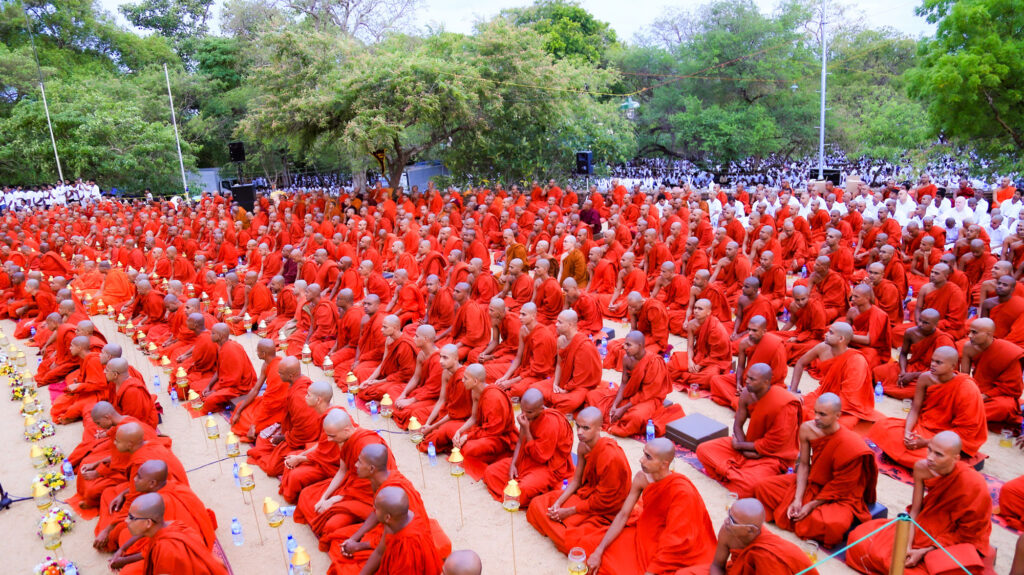
More than one hundred thousand people partook in the Wesak-Seela-Bhavana program organized in the premises of the Stupa Swarnhamali about seven years ago. Afterwards, a rapid increase in the number of disciples was seen within the next couple of years. Devotee disciples as many as 1.1 million gathered in the premises of the Stupa Swarnhamali in Anuradhapura throughout the night to join the “Extraordinary Swarnhamali Stupa Worshiping” and the Dhamma sermon ceremony conducted by Ven. Kiribathgoda Gnanananda Thero in 2008. It was, in fact, the largest crowd ever gathered continuously in a worshipping ceremony in the recent history of Sri Lanka.
Also, hundreds of thousands of people participated in the Stupa Sōmawati worshipping ceremony (“Budhuras Vihidena Sōmawati Mahā Stupa Vandana”) in the year 2010 and Stupa Rankothwehera worshipping ceremony in the year 2018 conducted by Ven. Kiribathgoda Gnanananda Thero.
Dhamma Publications
Ven. Kiribathgoda Gnanananda Thero has written many books composed of the noble discourses of the Supreme Buddha using a comprehensible style in Sinhala language, and about 90 books have been published up to now. Thero also translated the sacred text of Pali Sutta Pitaka into the Sinhala language. Eleven of these Tripitaka books are published to this point.
The series of books named ‘Amā dam rasa vaahena vistarārtha Dhamma padaya’ written by the venerable Thero using the Atthakatā for the fascinating ‘Dhamma Padaya’ preached by the Most Excellent One is like an enticing divine medicine for devotees of all ages.
Hundreds of audio cassettes and CDs of the venerable Thero’s Dhamma sermons quench the thirst of the devotees like a fabulous rain. The ‘Mahāmēgha’ Dhamma newspaper is another service presented by the Mahamevnawa aiming to take the message of Dhamma into the hearts of the people in the community. A website and a live webcast are also in operation to propagate the Dhamma internationally.
